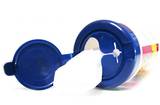Shop
01482
https://www.under5s.co.nz/shop/Hot+Topics+Articles/Health+%26+Wellbeing/Is+your+home+poison+proof.html
Is your home poison proof?
|
Are you sure your home is really poison proof? It’s amazing how many poisons can be found around your house which you might not even be aware of. We take a look at common household poisons you're likely to find in your home, what preventative measures you can put in place and what to do if your child is poisoned.
|
You might also be interested in ...
Effects of dummies & thumb sucking on kids teeth
Does your little one suck their thumb or use a dummy? It can be a way to pacify them when they’re young, but did you know that it can cause long term damage to their teeth as they grow nearer to school age?
Make your own wet wipes
Wet wipes have to be one of the most useful things you can carry around when you have a baby or little one in tow! Homemade wet wipes are easy to make and a lot cheaper than buying shop-bought wipes. By making your own wet wipes you’ll know what ingredients have gone into them too.
join usJoin us on social media for all our latest news. |
sign upSign up and receive our latest newsletters. |
|







It’s amazing how many poisons can be found around your house which you might not even be aware of.
Thousands of children are exposed to poisons or accidently poisoned every year, either from substances found in their home or unintentionally poisoned from therapeutic or prescription drugs.
Accidental exposure of children under 6 years old to poisons is a very real problem in New Zealand, with 20% of families with pre-school age children experiencing a poisoning every year.
How to make your house poison proof
We take a look at common household poisons you're likely to find in your home, what preventative measures you can put in place and what to do if your child is poisoned.
Common household poisons
Some products around your home are more toxic than others and in some instances, even small amounts can be extremely poisonous and harmful to your child if they are swallowed.
So what are some of the most common household poisons you're likely to come across? These include:
Poisons prevention at home
To help keep your kids safe from all sorts of household poisons, it's important to put some preventative measures in place immediately if you haven't done so already, including:
What to do if your child has been poisoned
If you suspect your child has swallowed something poisonous, DO NOT try to make them vomit or give them anything to drink until you have obtained medical advice.
Either phone the New Zealand National Poisons Centre toll free on 0800 POISON (0800 764 766) or seek medical advice from your GP, hospital or another health professional.
The National Poisons Centre (NPC) is a 24/7 Poisons Information Service available to all New Zealanders.
Provided by the Ministry of Health and ACC, the NPC maintains an accurate and up-to-date database of almost all poisonous substances in NZ and Australia, and provides professional and timely advice if you or your child has been poisoned.
Other kids health & wellbeing articles to enjoy:
- 6 Tips on dealing with accidents at home
- Buying guide to babies thermometers
- 15 Reasons for babies & kids to see a doctor
Source: NZ Poisons Centre